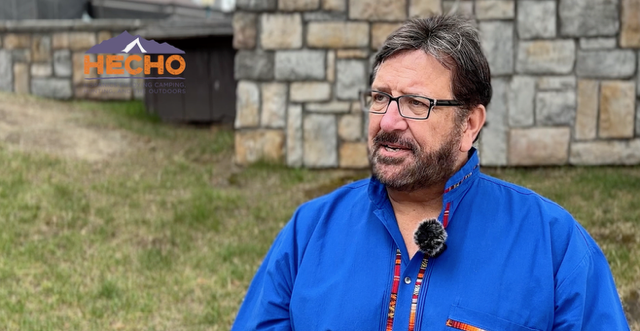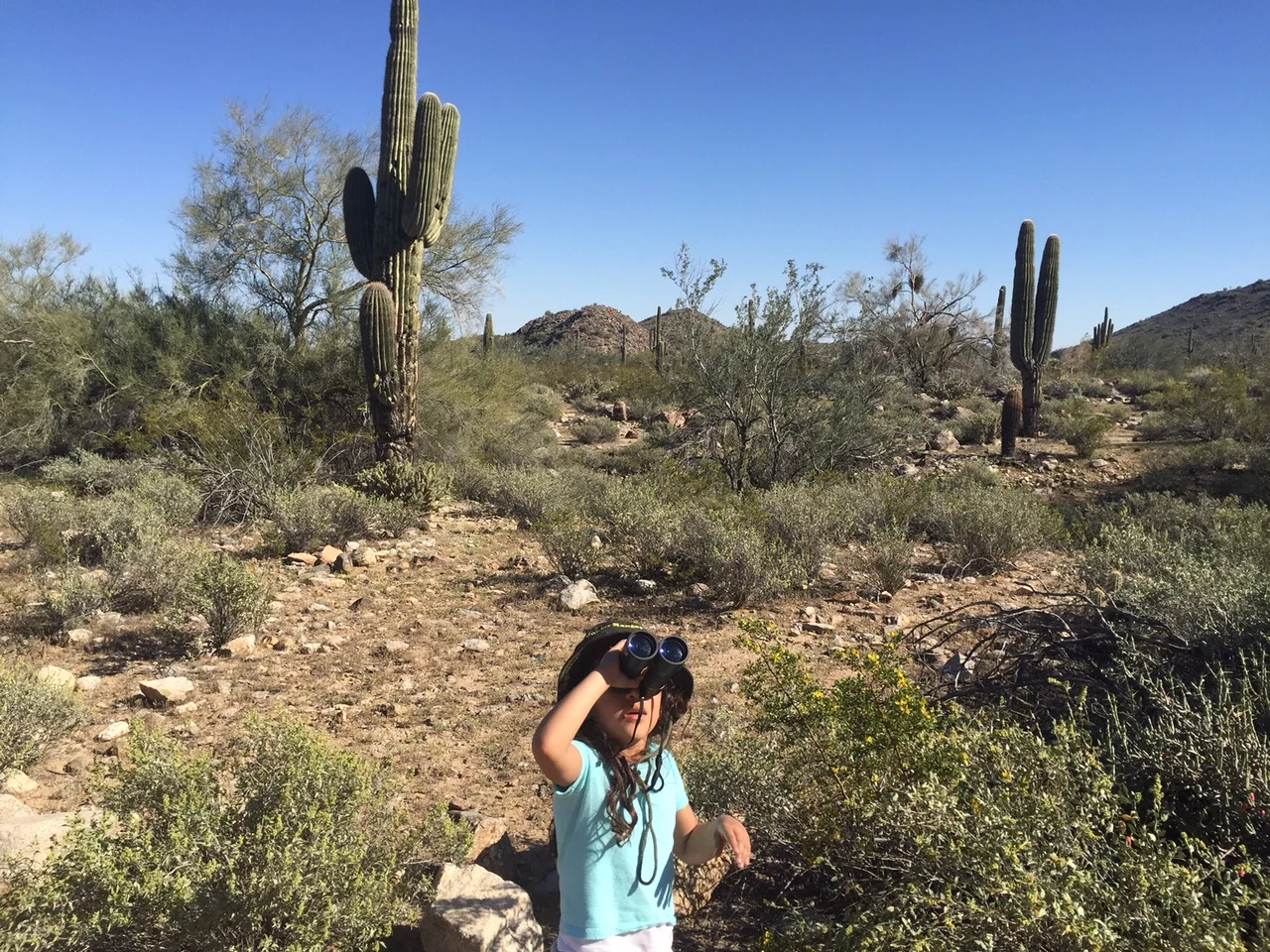Photo of Colorado River by Daniela Zavala.
Read MorePhoto by Breanna Gonzalez, HECHO CO Field coordinator.
Read MoreToday, President Biden restored Bears Ears and the Grand Staircase-Escalante National Monuments, carrying out a campaign promise to protect more than 2 million acres of national public lands, and making good on his America the Beautiful initiative.
For time immemorial, Bears Ears National Monument has been stewarded by the Navajo Nation, Hopi Tribe, Ute Mountain Ute Tribe, Ute Indian Tribe, and Pueblo of Zuni, who have been advocating for the protection of this culturally and archeologically significant landscape. Together, they are the Bears Ears Inter-Tribal Coalition, and they recently published a letter to the White House urging protection for the sacred site where religious ceremonies continue to take place. President Biden’s announcement comes on the eve of Indigenous People’s Day and evokes the importance of prioritizing Indigenous perspectives in the management of our public lands.
Read MoreI grew up in Corpus Christi, Texas, which is right on the Texas Gulf Coast. I came from a family that did not have a lot of money, so we did a lot of outdoor things like car camping, fishing, and hiking. The hunting we did was for our own livelihood. My father made it a priority to instill an appreciation for all the things the land offers us, clean air, clean water, and wildlife. These values have informed the conservation practices that have carried on into my life, that I have passed to my own children, and that I look forward to sharing with my grandchildren.
Read MoreFor generations, Hispanics have enjoyed a unique relationship with nature that connects us to our ancestors and fortifies the bond that we have with our community. Being able to practice these cultural traditions that depend on open spaces, is more critical than ever, and policy that includes Hispanic and Latinx values is especially urgent. For all of these reasons, Hispanic and Latinx leadership is invaluable in conservation legislation that is implemented and passed.
Read MoreRebecca Chavez-Houck (RCH): So, in reflecting on my experiences and my personal connection to the Grand Canyon, I looked at it through some of the different phases of my life. My first recollection of having visited the Grand Canyon was when my husband and I took our daughter on a trip there. I believe that I was expecting our second child and it was during the off season. It is kind of interesting how, when we think about our experiences in the outdoors and we think about going to different, amazing places, incredible places like the Grand Canyon, the experiences kind of fall together….
Read MoreRecent reports demonstrate the link between air pollution and deaths from COVID-19. This distressing connection underscores existing failures of the Trump Administration to prioritize public health-- from restricting access to health care to allowing corporations to pollute the air, land, and water-- making the Trump administration’s shamefully inadequate response to this public health crisis even worse. In response HECHO issued the following statement.
Read MoreIt’s not everyday we get to see a Latinx family enjoying an adventure outdoors. In partnership with the National Wildlife Federation, HECHO collaborated to host an advanced screening of Dora and the Lost City of Gold across New Mexico, Colorado, Arizona, and Utah.
Read MoreLately there has been a surge of state-based Outdoor Recreation Offices, and important coinciding efforts—namely equity funding in New Mexico and the Kids Outdoor Initiative in Utah, both supported by HECHO.
Earlier this month representatives from eight states signed off on a first-of-its kind agreement called the Confluence Accords, to unify and strengthen the outdoor industry voice on matters of public policy.
Read MoreI always went fishing with my grandfather and my uncles, Bernave Arellano and Virgil Lopez, who taught me how to catch trout. Both of my uncles were very respectful of the land and understood that it was important to leave it better than you found it.
Growing up in Salt Lake City, I always enjoyed the outdoors. The air felt so good to breathe and it seemed like the opportunities were endless. We were rather poor. My mother raised four kids by herself. We didn’t have a car for much of the time. When we got on the train to visit relatives, I always looked out the window at the open range where you could run fast and feel free.
Back then, my family hunted deer and elk. It’s important to realize that hunting and fishing are fun, but the best reason is to hunt to put food on the table. This is true for most Latinos. My family made jerky from the meat of the animals they killed. They would smoke the fish that we caught. Today, my relatives living in small towns in the Southwest still hunt for subsistence. A lot of these towns are food deserts and don’t have access to the best grocery stores. But through fishing and hunting you can still feed your family with good nutrition.
Read MoreIn late November, our mission and our passion came together when HECHO Advisory Board Members from Arizona, New Mexico, and Utah flew to Washington D.C. to speak directly to their members of Congress on the importance of protecting our shared public lands by reauthorizing the Land Water Conservation Fund (LWCF).
Read MoreDecision-making about where to drill typically excludes diverse stakeholders, including Latino communities that hunt, fish, camp, and use public lands. As a result, our access to public lands for recreation, subsistence, education, and traditional cultural uses are impeded. And, worse yet, sometimes the landscape, wildlife, or water is irreparably damaged.
Read MoreMaking our voices heard in regards to the Moab MLP isn’t just about protecting public lands. It’s about protecting Hispanic heritage. Within the planning area is 43.2 miles of our history – the Old Spanish Trail.
Read MoreMy dad really ingrained in us kids the importance of stewardship, and this was something I knew was a commitment. You reap from the land and you have to be good stewards for the land. At a young age I was aware of that importance.
Read MoreMany Latino families are working so hard to fulfill those basic necessities, they may not have the time or headspace to consider the land or recreation or connecting with nature. However, in my opinion, spending time with family is also a basic necessity, and public lands are a great venue, as they are open to everyone and they provide a place for families to be together doing activities that are low-cost.
Read MoreOnly in America could a migrant boy from Mexico picking tomatoes look up toward the snowcapped mountains of the Sierra Nevada, and 30 years later, manage those same magnificent lands.
Read MoreCritical decisions made today will affect Latino heritage for generations...
Read More
The U.S. Department of the Interior regularly leases public lands in order to extract natural resources, but that leasing process has not always been fair to the citizens of this country who are collectively the technical owners of these public lands. Which federal public lands do you think deserve protections?





















